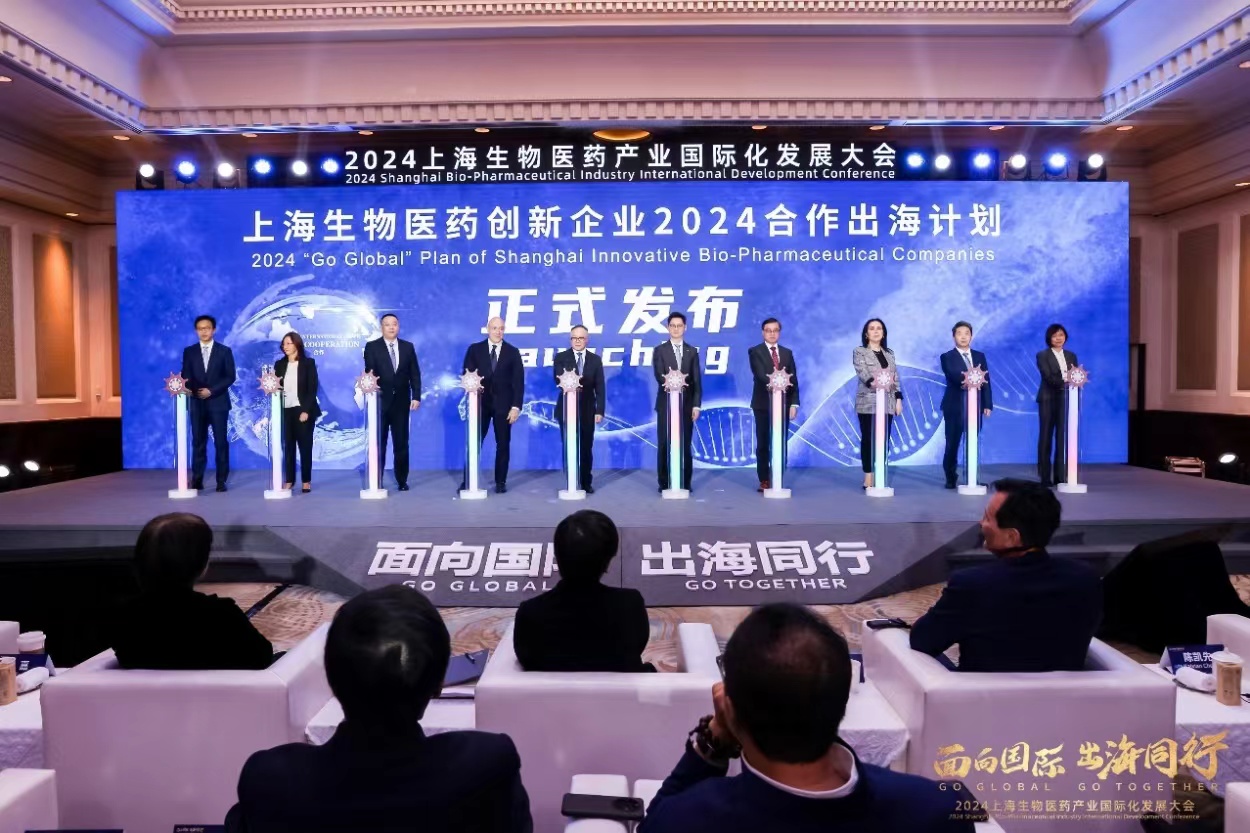 AstraZeneca Picks Shanghai as Global Strategic Hub
AstraZeneca Picks Shanghai as Global Strategic Hub(Yicai) March. 1 -- AstraZeneca has chosen Shanghai as the Anglo-Swedish drugmaker’s fifth global strategic site and plans to help take global more biopharmaceutical firms based in the city.
Shanghai has become a center of rapid growth for AstraZeneca over the past three decade, Chief Executive Officer Pascal Soriot said at the Shanghai Bio-Pharmaceutical Industry International Development summit on Feb. 26.
The company views China as a crucial hub for global innovation, with Shanghai a key part of AstraZeneca’s strategy, he said, adding that the firm has expanded its organizational presence in the country along with its manufacturing and export operations.
AstraZeneca’s international headquarters, China HQ and China global R&D center are located in Shanghai. Its other strategic sites are Cambridge in the United Kingdom, where the business is based, Boston and Gaithersburg in the United States, and Gothenburg in Sweden. Shanghai’s will integrate research and development with commercial and production operations.
Like the other R&D hubs, Shanghai has people who can do global drug development, Susan Galbraith, Executive Vice President of Oncology R&D of AstraZeneca, told Yicai. “That's a really important pace,” she said.
The team in Shanghai is “actually leading trial design that would be for global trials, for global registration, and for global approvals,” Galbraith noted.

AstraZeneca’s recent acquisition of Shanghai-based clinical-stage biopharma firm Gracell Biotechnologies will make Shanghai a base for cell therapy innovation, Galbraith said. In the cell therapy area, the pace of innovation in China is world-leading and Gracell’s GC012F is one of the best for treating multiple myeloma, she said.
AstraZeneca paid USD1.2 billion for Gracell, in a deal that completed on Feb. 22, partly because of GC012F, which has a shorter production process, thereby reducing cost, providing greater predictability of delivery to patients, and better safety from a lower rate of side effects associated with this therapy. The acquisition also enables collaboration on the ground in Shanghai.
“What we have bought is the ability to deliver our pace of cell therapy globally now to run clinical trials, not just in oncology but potentially in new diseases as well,” Galbraith pointed out.
Going Global From China
AstraZeneca also aims to help 30 Shanghai biotechnology firms access emerging markets in China’s Belt and Road Initiative, as well as Europe, the United States, and Japan for cross-border cooperation and pharmaceutical innovation exchanges.
“We are investing in talent development, as well as collaboration relationships,” Galbraith noted. With investment, relationships in the community, and thirty years of commitment, AstraZeneca is helping to build the ecosystem.
The company is also investing through the AstraZeneca-CICC Healthcare Industrial Fund, which helps biotech companies accelerate their growth, she said. So far, the fund has invested in about 20 enterprises.
In the last 12 months, AstraZeneca has sealed over seven licensing agreements with Chinese biopharma firms, six of which were in oncology, Galbraith said.
For example, AstraZeneca and Chengdu-based KYM Biosciences inked an exclusive global licensing deal for CMG901, a potential antibody drug conjugate targeting gastric cancer, a year ago, and then in May, the firm also expanded its ADC portfolio with Shanghai’s LaNova Medicines.
Editor: Tom Litting